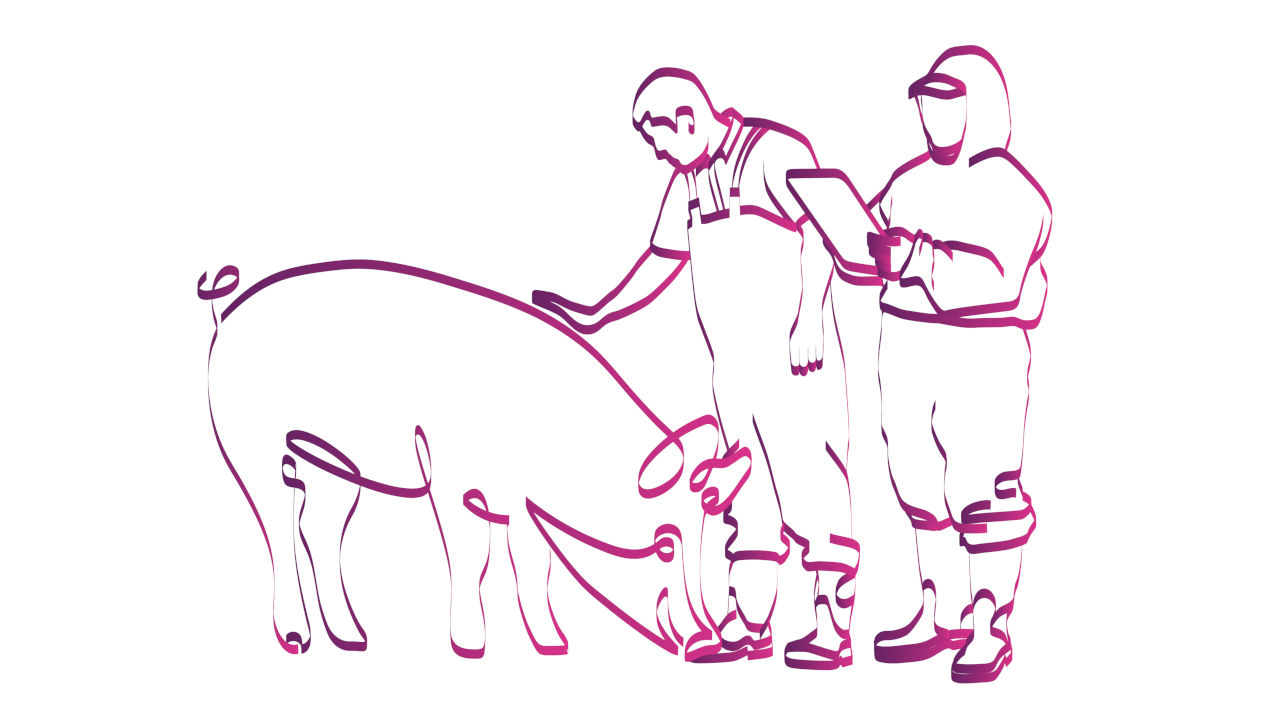‘Prevent a time-squeeze and explain the benefits of animal welfare’

Subject
Conducting inspections
Target audience
Welfare inspectors
Inspector: Michael (50) from Germany
In my opinion, the regulations for inspected cattle farms are more comprehensive. For cattle for example, the exact number of cows is recorded in a herd management system, which I can check before the inspection. And cows are usually kept in a single barn. Pig farms, on the other hand, have an average herd between 5.000 to 10.000 pigs and a constantly varying number due to their relatively short life cycle. Moreover, the animals are distributed over different barns, compartments and stalls. All in all it’s quite a job to assess the living conditions for each individual pig.
Whether the work is fun? The word fun in this context might be a little inappropriate, because I would describe the work as important. Precisely checking everything is difficult and can cause stress, even if there is sufficient time to prepare. Moreover, the conversation and collaboration with the farmers can be intensive. The farmer feels dependent on the decisions that we make based on regulations: if we find deficiencies during an inspection, this might lead to additional work and costs. Additionally, the EU may cut back their subsidies and the local government — the ‘Landkreis’, my employer — may issue a fine.
Although the farmers are updated on the changes of the law and regulations frequently, this does not guarantee that they are aware of all the details. When I visit a farm, I try to focus on the main changes and latest important renewals in this farmer’s individual case. Plus: I try to explain that when he complies to the legal regulations on animal welfare, that will lead to healthier and more productive livestock. Only if the farmers — as entrepreneurs — accept our legally-sound advice, things will truly change. Temporary changes to avoid fines don’t last and aren’t effective.
For example, farmers often don’t acknowledge the advantage of keeping pigs occupied with a variety of enrichment materials. But if they wish to prevent pigs from biting each other’s tails, the pigs need more variety than a simple piece of wood in their cage. Straw bedding, for instance, is an excellent alternative. This provides the pigs with an inexhaustible source of playing, chewing and burrowing material. However, farmers rarely opt for this solution as the straw may clog the pumps in the manure pit.
Another example are the barns, which often lack sufficient daylight. Farmers are mistakenly convinced that pigs bite each other less in the darkness. Besides light being a legal requirement, pigs need daylight for healthy growth and for their entertainment. As pigs are very intelligent animals, biting can only be prevented if they are sufficiently distracted. In the same manner, sufficient space is required, too, ideally with separate sections for sleeping, eating, and grooming.
Regardless of whether the farmer takes the advice, avoiding time-pressure and stress is essential for any inspection. The size of the business is irrelevant. My advice is to always plan enough time and staff — possibly more inspectors. Prepare yourself by reading previous inspection reports, and make a checklist that aligns with your personal approach. This will enable you to work systematically on-site and prevent you from accidentally missing things.
Finally, I emphasise the benefits of inspections to the farmer. Inspectors like myself can provide him or her with valuable information, for example on the correct way to use newly acquired equipment used to stun and kill animals in emergencies. In all the work I do as an inspector, I believe that pig farms are the most intensive cases regarding workload in comparison to cattle, sheep, and small or domestic animals. Discussing current cases and problems with colleagues is essential and supportive. I do this both with my immediate environment, but also with international colleagues, for instance during a Better Training for Safer Food (BTSF) presentation.’
